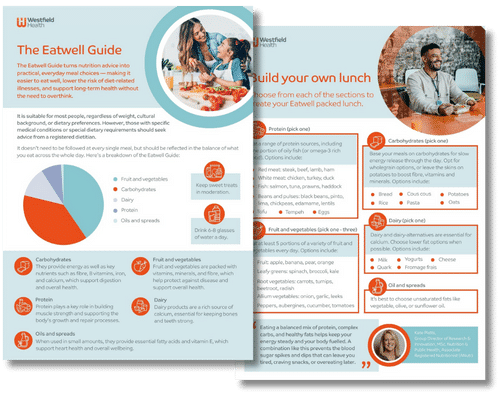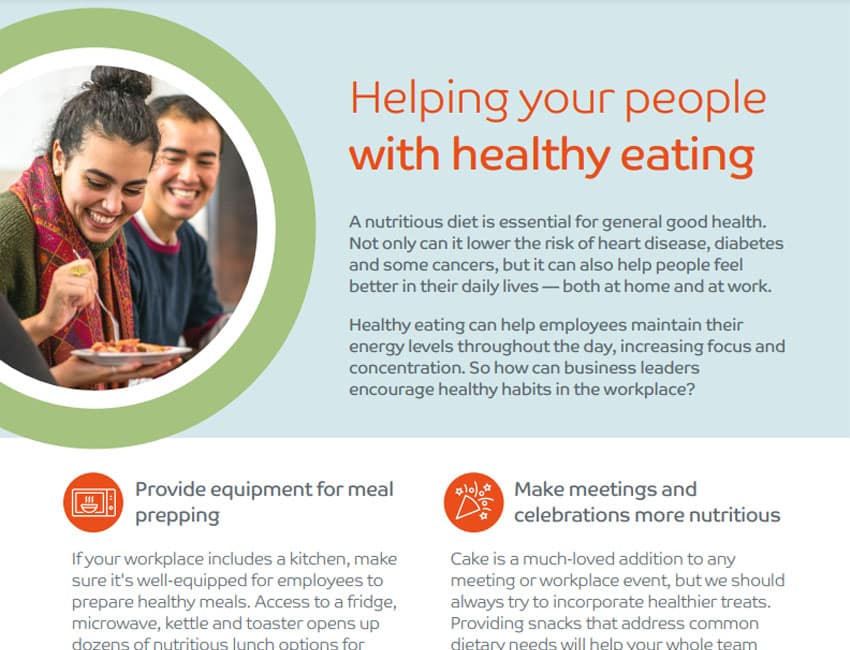Having a nutritious diet is beneficial for many reasons beyond maintaining a healthy weight. Food creates fuel for our body. The types of food we eat, volume and times of day all have a huge impact on our energy and overall health.
The World Health Organisation (WHO) explains that good nutrition improves the immune system’s ability to fight off illness, speeds up the healing process and prevents against developing conditions such as heart disease, diabetes, stroke, some cancers, and osteoporosis.
Good nutrition improves your physical wellbeing, supports healthy development and maintenance against health risks. What makes up a balanced, healthy diet may vary depending on a person’s characteristics and those with specific medical conditions or special dietary requirements should seek advice from a registered dietitian.
The Eatwell Guide
The Eatwell Guide has been developed by Public Health England. It’s a visual tool that provides an easy-to-understand breakdown of how much of each group should be included in your diet for healthy eating.
Download our free guide that includes:
- How to balance different types of foods for overall health.
- The importance of variety in the diet.
- A breakdown of the role of each food group.
- How to make healthier choices in each food group.

How does food affect our mood and wellbeing?
What you eat impacts your mental state by influencing the hormonal signals your gut sends to your brain. The “gut-brain axis” is a two-way communication system linking your gut to your central nervous system.
Let’s explore some of the ways that different foods affect the way we feel:
Eating a balanced diet
A varied diet with plenty of fibre, fruits, and vegetables helps promote a healthy gut environment, which in turn supports the optimal production of mood-regulating chemicals.
Processed food and sugars
A diet rich in processed foods and sugar can disrupt the balance of gut flora, which in turn can disrupt hormonal messaging and negatively affect your mood.
Good food = good mood
The gut contains trillions of bacteria and these play a crucial role by producing hormones and neurotransmitters (like serotonin), which directly influence feelings of happiness and wellbeing.
Healthy eating can help employees maintain their energy levels throughout the day, with nutrient-rich foods helping to combat fatigue, increase focus and concentration.

Kate Platts,
Group Director of Research & Innovation,
MSc. Nutrition & Public Health,
Associate Registered Nutritionist (ANutr)
Maintaining good nutrition at work
Creating a culture that values good nutrition helps people feel more confident and focused – both in and out of work. Our guidance focuses on small, practical steps that make nutrition changes easier to stick with and more sustainable over time.
Our free resources outline tips on making nutritional changes stick, as well as ways to encourage healthy eating in the workplace. Download them here:

